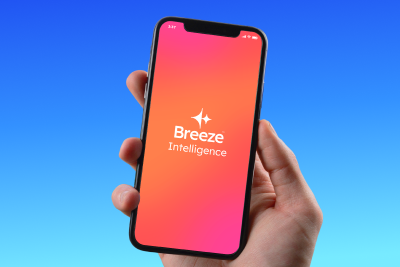Choose the Right CRM for Your Business: A Comprehensive Guide
In today’s competitive business environment, a Customer Relationship Management (CRM) system is essential for managing customer interactions, streamlining processes, and driving growth. But with so many options on the market, choosing the right CRM can be overwhelming. This guide will help you understand how to select the best CRM for your business, with a particular focus on HubSpot—a popular, user-friendly solution that’s perfect for businesses of all sizes, from small to medium-sized businesses (SMBs) to large enterprises.
Comparing Top CRM Software: HubSpot vs. Salesforce vs. Zoho
When it comes to selecting a CRM, there are numerous options on the market, each with its own strengths and weaknesses. For small to medium-sized businesses, the choice often comes down to three popular platforms: HubSpot, Salesforce, and Zoho. While all three offer essential CRM features, they differ significantly in terms of ease of use, pricing, scalability, and customization. In this comparison, we’ll explore what sets these CRMs apart and highlight why HubSpot is often the go-to choice for businesses seeking a comprehensive yet user-friendly solution.
1. HubSpot CRM
-
User-Friendly
HubSpot’s interface is clean, simple, and easy to navigate. It doesn’t require extensive training, which makes it perfect for businesses new to CRM systems.
-
Comprehensive Features
From lead tracking to marketing automation, email marketing, and analytics, HubSpot offers a full suite of tools that can be easily integrated across your business operations.
-
Scalability
HubSpot’s modular design means you can start with the basics and add more advanced features as your business grows. Whether you need sales, marketing, or customer service tools, HubSpot has a range of plans to fit various needs.
-
Free Tier
One of HubSpot’s standout features is its free CRM, which provides essential functionalities without any cost, making it ideal for startups and small businesses.
2. Salesforce
-
Customization
Salesforce is known for its highly customizable platform, making it suitable for larger enterprises with complex needs. However, this customization comes with a learning curve, and the system can be overwhelming for businesses.
-
Advanced Features
Salesforce excels in offering advanced analytics, automation, and integration capabilities, but it tends to be more expensive than HubSpot.
-
Industry-Specific Solutions
Salesforce provides tailored solutions for different industries, but these can be overkill for the majority of companies.
3. Zoho CRM
-
Affordability
Zoho CRM is one of the most budget-friendly options, with a variety of plans designed to cater to small businesses.
-
Integrations
While it integrates well with other Zoho products, its third-party integrations aren’t as seamless as those of HubSpot.
-
Ease of Use
Zoho has a straightforward interface, but it may lack some of the polish and intuitiveness of HubSpot.
Why HubSpot Stands Out
When it comes to CRM software, HubSpot is often at the top of the list, and for good reason. Known for its intuitive design, seamless integration capabilities, and extensive features, HubSpot caters to businesses of all sizes. However, its easy-to-use platform and scalable tools make it especially suitable for SMBs looking to grow without being bogged down by complex systems. HubSpot also offers a free tier, which is an excellent way for businesses to get started and scale up as their needs expand.
CRM Features Checklist for Small to Medium-Sized Businesses
When choosing a CRM, consider these key features:
- Contact & Lead Management – Does the CRM make it easy to track contacts, leads, and their interactions with your business?
- Sales Pipeline Management – Can you visualize your sales pipeline and monitor deals at various stages?
- Marketing Automation – Are there tools to automate email marketing, lead nurturing, and customer segmentation?
- Reporting & Analytics – Does the CRM offer robust reporting features to help you understand sales performance and marketing ROI?
- Integration Capabilities – Can the CRM integrate with other tools you’re using, such as email, e-commerce platforms, and accounting software?
- User-Friendliness – Is the system easy to learn and use? Will your team be able to adopt it quickly without extensive training?
- Mobile Access – Can your team access the CRM on-the-go via mobile devices?
- Scalability – Will the CRM grow with your business, offering features you can expand into as needed?
HubSpot checks all these boxes, which is why it is a top choice for businesses like yours!
Tips for Seamless CRM Integration and Adoption
1. Assess Your Business Needs
Before choosing a CRM, take the time to analyze your business needs. Determine what problems you want to solve and what features are essential. HubSpot offers a range of features that can be customized to meet these needs, making it a great starting point.
2. Get Team Buy-In
For a successful CRM adoption, it’s crucial that your team is on board. Involve key team members in the decision-making process and choose a CRM that they find user-friendly. HubSpot’s ease of use often makes it a hit with teams because it minimizes the training period and maximizes productivity.
3. Start Small, Then Scale
If you’re new to CRM, consider starting with a free or basic plan to get a feel for the system. HubSpot’s free CRM provides a robust set of features that will help you manage contacts and leads without the pressure of a large financial commitment.
4. Prioritize Integration
Make sure the CRM can integrate with the tools you already use. HubSpot’s strong integration capabilities mean you can connect it with other software like Gmail, Outlook, Slack, Shopify, QuickBooks, and more, ensuring all your business data works together seamlessly.
5. Regularly Review and Optimize
Continuously assess how the CRM is being used and make adjustments as needed. HubSpot offers detailed analytics and reports, allowing you to track your progress and identify areas for improvement.
Choosing the right CRM for your business doesn’t have to be daunting. By focusing on your specific needs, comparing top options, and understanding the features that matter most, you can make an informed decision. While Salesforce and Zoho have their strengths, HubSpot stands out for its ease of use, scalability, and robust integration options—making it an excellent choice for businesses looking to grow efficiently.
At Prismo Marketing, we specialize in helping businesses leverage HubSpot to its fullest potential. From choosing the right plan to seamless integration and optimization, our team ensures you get the most out of HubSpot to drive your business forward.
At Prismo Marketing, our comprehensive suite of services covers everything for a standout digital brand. From crafting visually stunning and user-friendly websites to boosting online visibility with results-driven SEO, we ensure discoverability and engagement. Our experts collaborate to create a memorable and cohesive brand image, incorporating creative graphic design that makes a visual impact, from logos to marketing collateral. Additionally, streamline your business processes with seamless HubSpot CRM integration. We‘re here to turn your digital aspirations into a reality. Ready to elevate your online presence? Contact us today, and let‘s get started on propelling your brand to new heights.
Featured Blogs


WRITTEN BY
Taylor Dolinger
Taylor brings a distinctive blend of expertise in graphic design, UI/UX, HubSpot CRM implementation, and marketing automation strategies. She's passionate about bridging the gap between aesthetic design and functional user experiences, ensuring that brands look impeccable, deeply resonate with their audiences, and efficiently reach their target markets.

